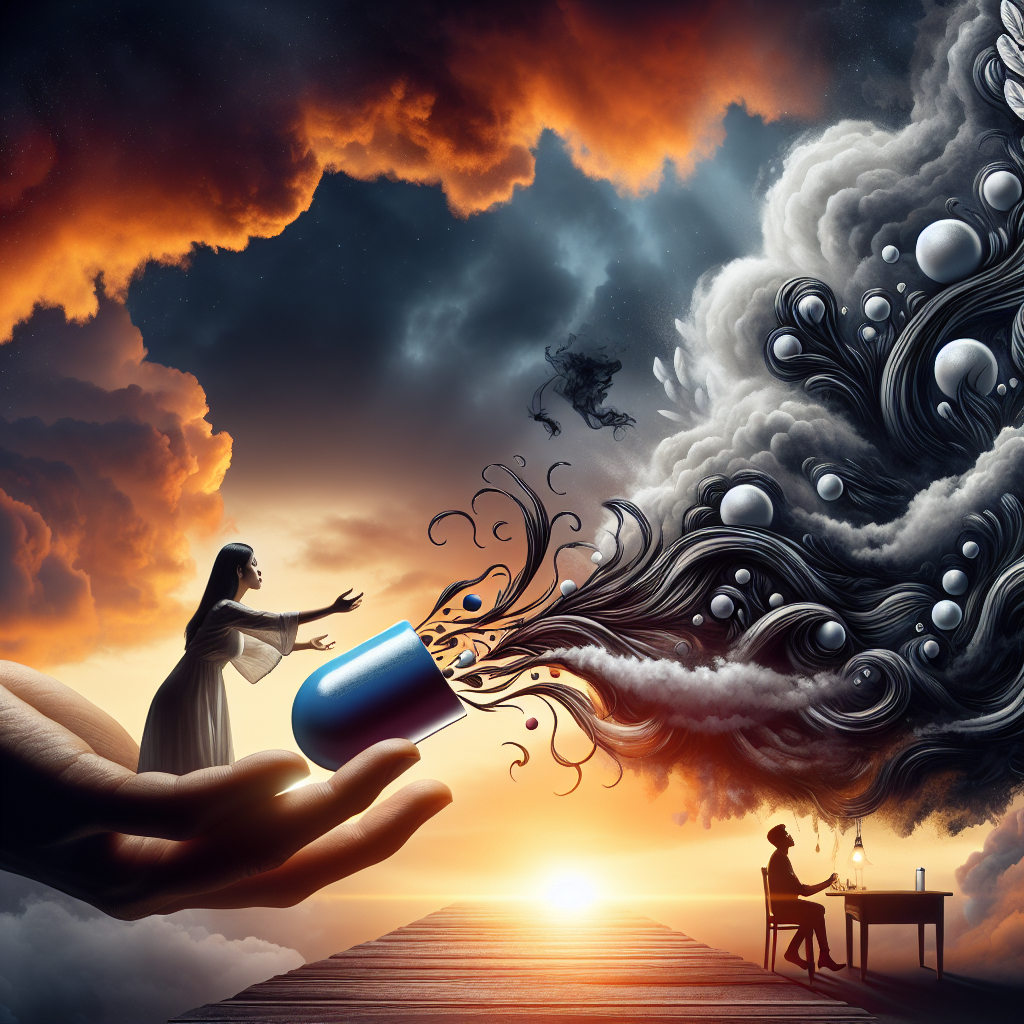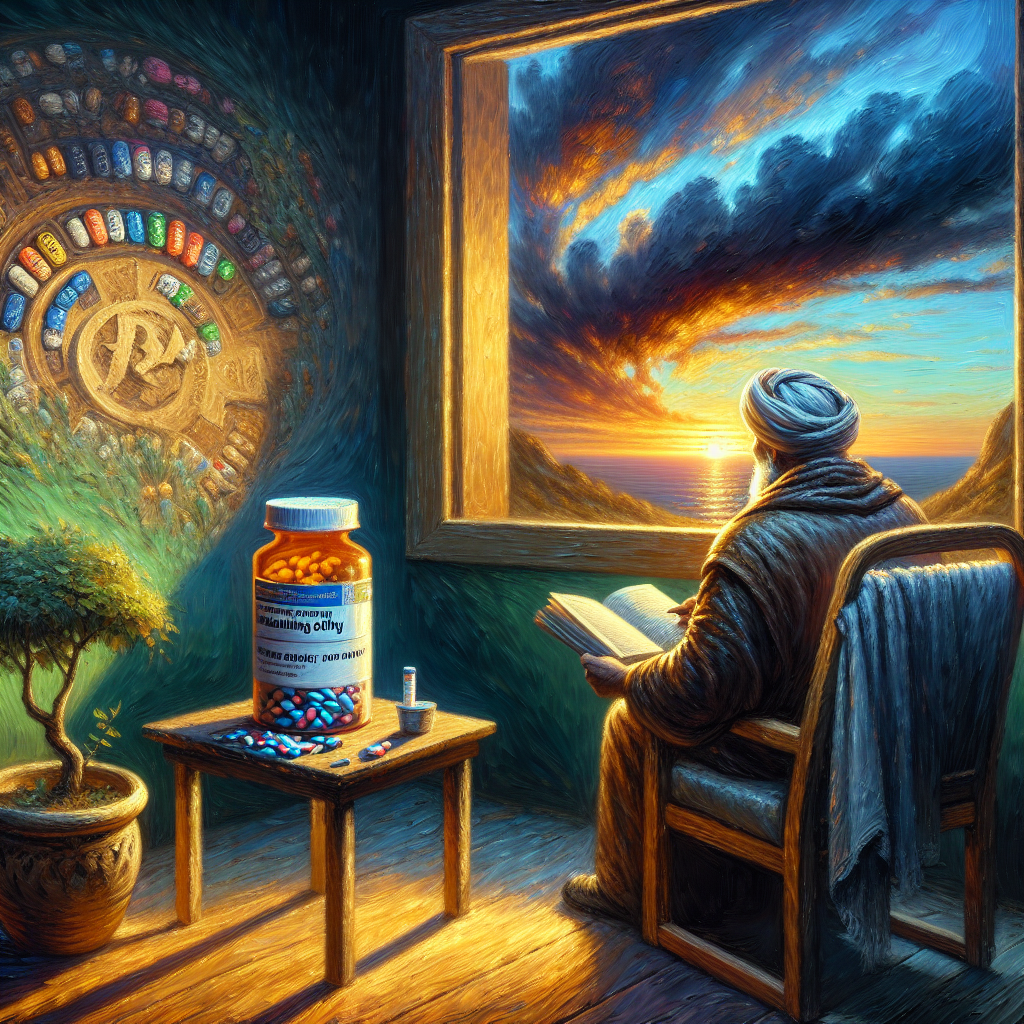-
Table of Contents

“Medication: A Pillar of Support in Gambling Addiction Recovery.”
Introduction
Gambling addiction, also known as compulsive gambling or gambling disorder, is a serious condition that can have devastating effects on an individual’s life, including financial ruin, relationship problems, and mental health issues. While traditional treatment methods such as cognitive-behavioral therapy (CBT) and support groups like Gamblers Anonymous have been the cornerstone of recovery, there is growing interest in the role of medication in aiding the recovery process. Medications, particularly those that target the brain’s reward system, have shown promise in reducing the urge to gamble and managing co-occurring mental health conditions such as depression and anxiety. This introduction explores the potential benefits and limitations of using medication as part of a comprehensive treatment plan for gambling addiction recovery.
The Role Of Medication In Gambling Addiction Recovery: What You Need To Know
Gambling addiction, also known as compulsive gambling or gambling disorder, is a complex and often devastating condition that affects millions of people worldwide. While the thrill of the game can be enticing, for some, it spirals into a relentless cycle of betting and losing, leading to severe financial, emotional, and social consequences. The journey to recovery can be arduous, but it is not insurmountable. One of the emerging avenues in the treatment of gambling addiction is the use of medication. Understanding the role of medication in gambling addiction recovery can provide hope and a clearer path for those seeking to reclaim their lives.
Traditionally, gambling addiction has been treated through behavioral therapies, support groups, and counseling. Cognitive-behavioral therapy (CBT) has been particularly effective, helping individuals identify and change the thought patterns that drive their compulsive behaviors. However, for some, these methods alone may not be sufficient. This is where medication can play a crucial role, offering an additional layer of support in the recovery process.
Medications used in the treatment of gambling addiction primarily target the brain’s reward system. Gambling activates the brain’s dopamine pathways, similar to how drugs and alcohol do, creating a sense of euphoria that can become addictive. By modulating these pathways, certain medications can help reduce the cravings and urges to gamble. For instance, selective serotonin reuptake inhibitors (SSRIs), commonly used to treat depression and anxiety, have shown promise in reducing gambling behaviors. These medications work by increasing the levels of serotonin in the brain, which can help improve mood and reduce impulsivity.
Another class of medications that has been explored is opioid antagonists, such as naltrexone. These drugs block the effects of opioids in the brain, which can help diminish the pleasurable sensations associated with gambling. Studies have indicated that naltrexone can be effective in reducing the frequency and intensity of gambling episodes, making it a valuable tool in the recovery arsenal.
While the potential benefits of medication are significant, it is essential to approach this treatment option with caution and under the guidance of a healthcare professional. Medications can have side effects, and their effectiveness can vary from person to person. A comprehensive treatment plan that includes medication should also incorporate behavioral therapies and support systems to address the multifaceted nature of gambling addiction.
Moreover, it is crucial to recognize that medication is not a cure-all. Recovery from gambling addiction is a continuous journey that requires commitment, support, and self-awareness. Medications can provide the necessary support to manage cravings and reduce impulsive behaviors, but they work best when combined with other therapeutic interventions. Support groups, such as Gamblers Anonymous, offer a community of individuals who understand the struggles and triumphs of recovery, providing invaluable emotional support and accountability.
In conclusion, the role of medication in gambling addiction recovery is an evolving and promising field. While it is not a standalone solution, it can significantly enhance the effectiveness of traditional therapies and support systems. For those grappling with the challenges of gambling addiction, the integration of medication into a comprehensive treatment plan offers a beacon of hope. By addressing the neurological underpinnings of the disorder, medication can help individuals regain control over their lives, paving the way for a healthier, more fulfilling future.
Exploring The Effectiveness Of Medication For Gambling Addiction Treatment
Gambling addiction, also known as compulsive gambling or gambling disorder, is a condition that can have devastating effects on an individual’s life, affecting their financial stability, relationships, and mental health. While traditional treatment methods such as cognitive-behavioral therapy (CBT) and support groups like Gamblers Anonymous have proven effective for many, there is growing interest in the potential role of medication in aiding recovery. This exploration into the effectiveness of medication for gambling addiction treatment aims to shed light on how pharmacological interventions can complement existing therapies and offer hope to those struggling with this challenging condition.
To begin with, it is essential to understand that gambling addiction shares similarities with other forms of addiction, such as substance abuse. Both conditions involve the brain’s reward system, where dopamine plays a crucial role. Dopamine is a neurotransmitter that regulates pleasure and reward, and in the case of gambling addiction, the anticipation of a win can trigger a surge of dopamine, reinforcing the behavior. Consequently, researchers have investigated whether medications that influence dopamine levels could help manage gambling urges.
One class of medications that has shown promise is selective serotonin reuptake inhibitors (SSRIs), commonly used to treat depression and anxiety. SSRIs work by increasing the levels of serotonin in the brain, which can help regulate mood and reduce impulsivity. Studies have indicated that SSRIs may be beneficial for individuals with gambling addiction, particularly those who also suffer from co-occurring mental health disorders. By addressing underlying issues such as depression or anxiety, SSRIs can help reduce the compulsion to gamble.
Another medication that has garnered attention is naltrexone, an opioid receptor antagonist typically used to treat alcohol and opioid dependence. Naltrexone works by blocking the effects of opioids in the brain, thereby reducing the pleasurable sensations associated with these substances. In the context of gambling addiction, naltrexone has been found to decrease the urge to gamble by dampening the brain’s reward response. Clinical trials have demonstrated that individuals taking naltrexone experience fewer gambling-related thoughts and behaviors, suggesting that it can be a valuable tool in the recovery process.
Additionally, mood stabilizers such as lithium and anticonvulsants like topiramate have been explored for their potential to treat gambling addiction. These medications are often prescribed for bipolar disorder and epilepsy, respectively, and work by stabilizing mood and reducing impulsivity. Preliminary research indicates that they may help individuals with gambling addiction by mitigating mood swings and impulsive behaviors that contribute to the compulsion to gamble.
While the potential benefits of medication for gambling addiction are promising, it is crucial to recognize that pharmacological treatment is not a standalone solution. Medications can be most effective when used in conjunction with other therapeutic approaches, such as CBT, which helps individuals identify and change unhealthy thought patterns and behaviors. Support groups and counseling can also provide essential emotional support and coping strategies.
In conclusion, the exploration of medication as a treatment for gambling addiction offers a beacon of hope for those seeking recovery. By addressing the neurochemical imbalances that contribute to compulsive gambling, medications such as SSRIs, naltrexone, and mood stabilizers can play a vital role in a comprehensive treatment plan. However, it is essential to approach recovery holistically, combining pharmacological interventions with therapy and support systems to achieve the best possible outcomes. With continued research and a commitment to integrated care, individuals struggling with gambling addiction can find the path to a healthier, more fulfilling life.
Q&A
1. **Question:** Can medication be used to treat gambling addiction?
**Answer:** Yes, certain medications such as antidepressants, mood stabilizers, and opioid antagonists have been found to help reduce the symptoms of gambling addiction.
2. **Question:** Are medications alone sufficient for gambling addiction recovery?
**Answer:** No, medications are often used in conjunction with therapy and support groups for a more comprehensive approach to gambling addiction recovery.
Conclusion
Medication can be a helpful component in the recovery from gambling addiction, particularly when used in conjunction with therapy and support groups. Certain medications, such as antidepressants, mood stabilizers, and opioid antagonists, have shown promise in reducing the urges and behaviors associated with gambling addiction. However, the effectiveness of medication can vary from person to person, and it is often most beneficial when tailored to an individual’s specific needs and used as part of a comprehensive treatment plan.



